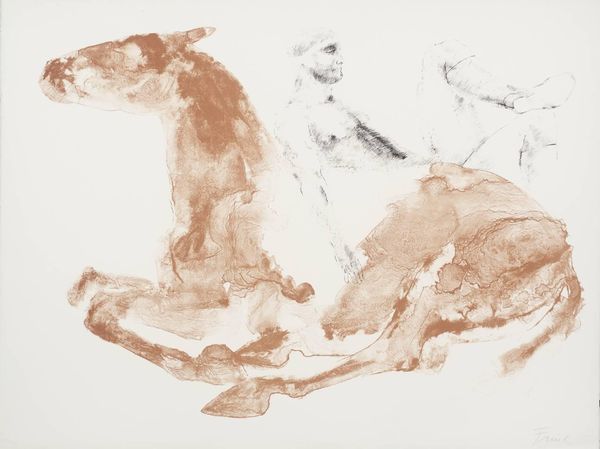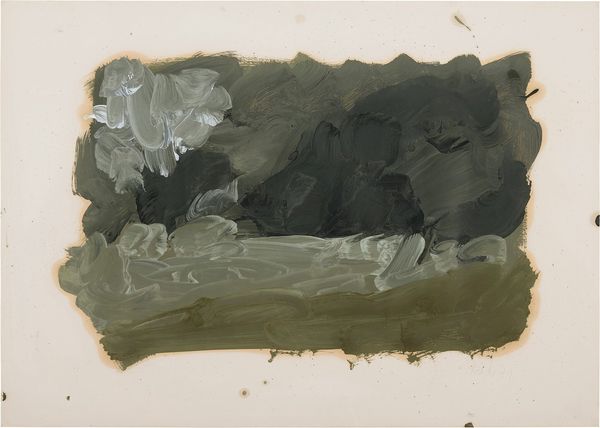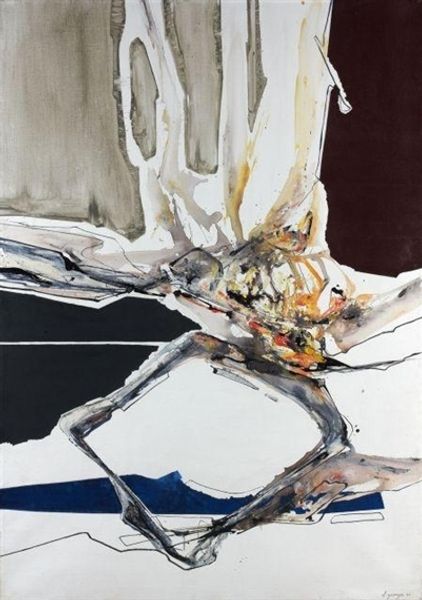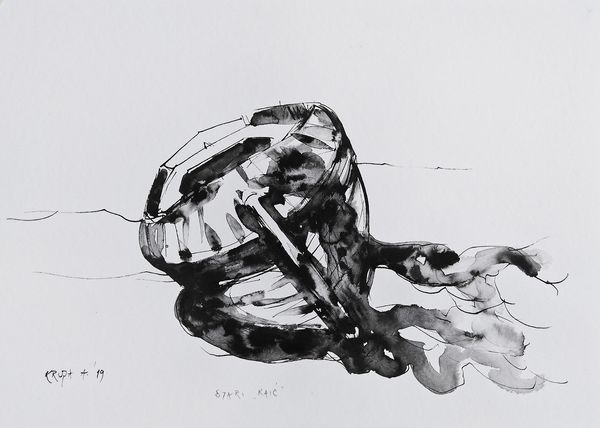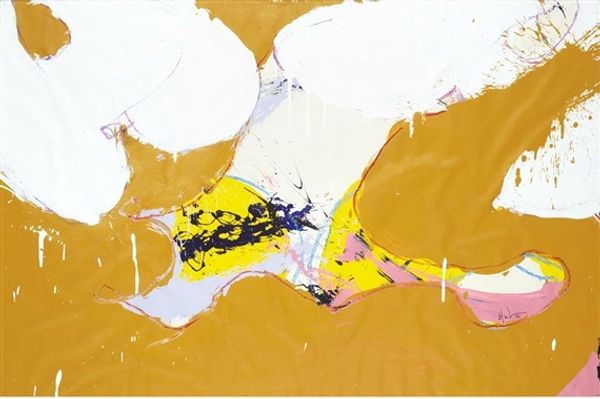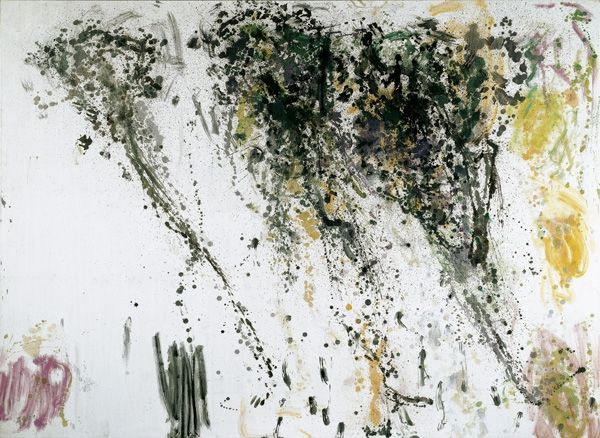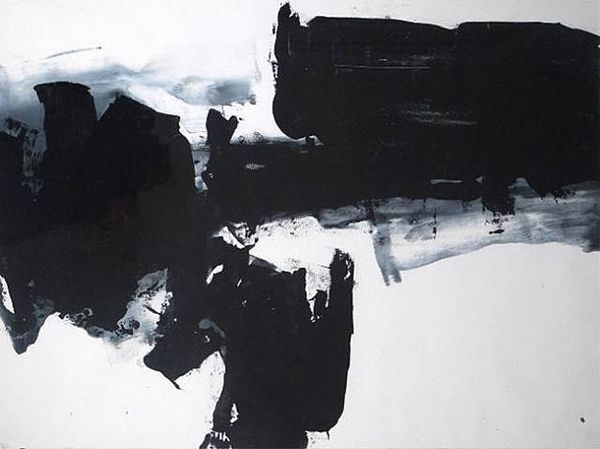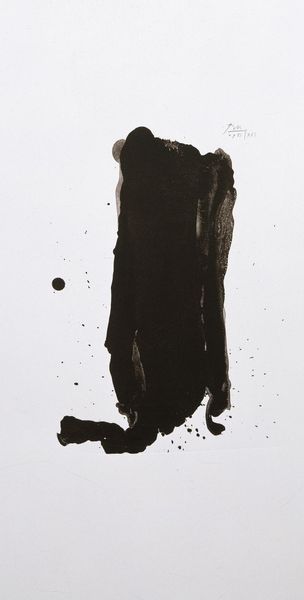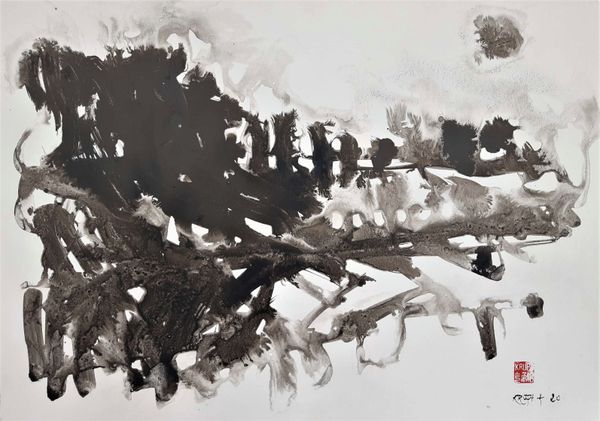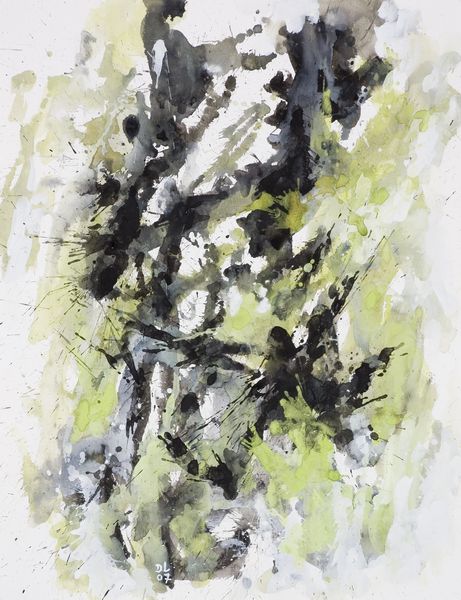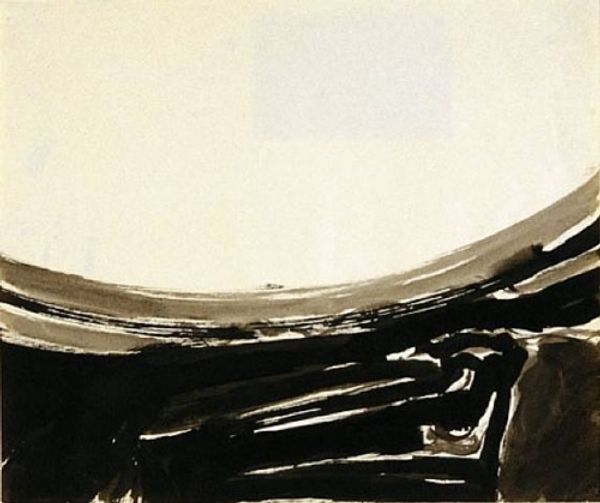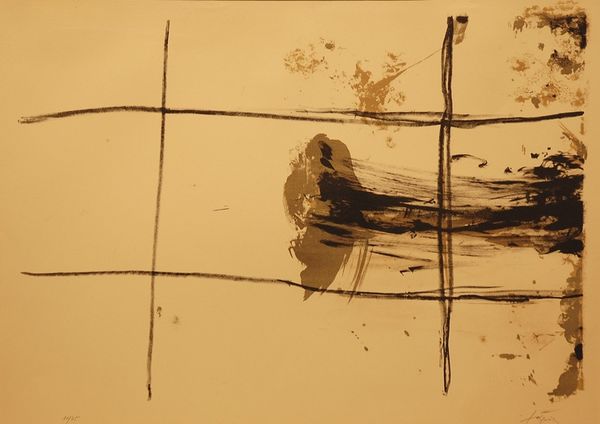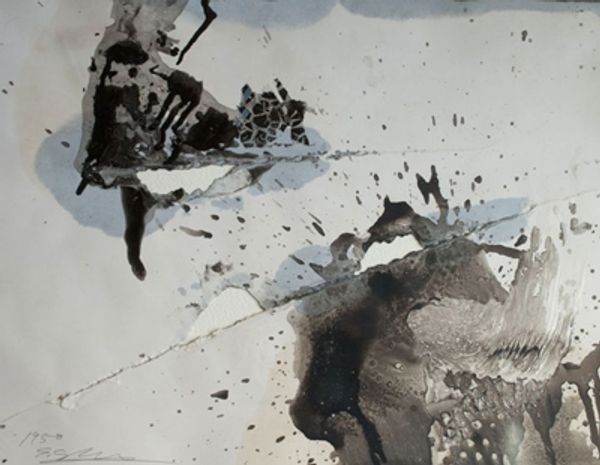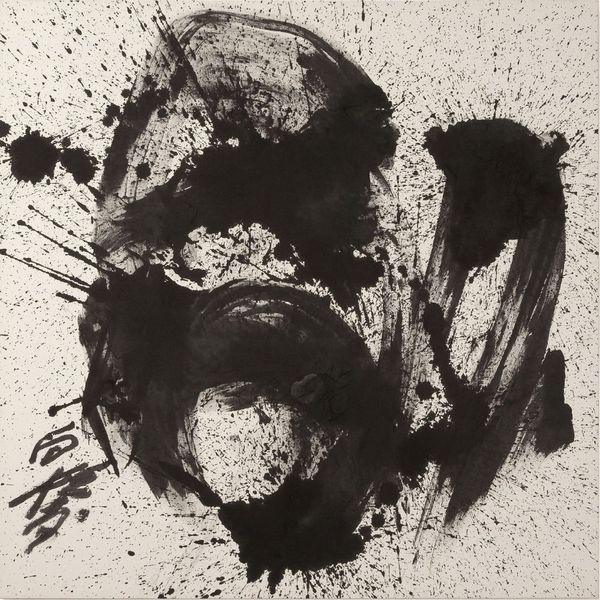
#
abstract expressionism
#
abstract painting
#
impressionist landscape
#
possibly oil pastel
#
female-nude
#
fluid art
#
neo expressionist
#
acrylic on canvas
#
underpainting
#
sketch
#
paint stroke
#
expressionist
Copyright: Eric Fischl,Fair Use
Curator: Well, let's consider Eric Fischl's "Untitled" work from 2001. It’s striking, isn’t it? What's your initial take? Editor: There’s a rawness to it; it's as if the artist urgently rendered a figure emerging, or perhaps dissolving. The use of what looks like diluted ink or watercolour gives it an almost ephemeral quality. Curator: Precisely. Fischl’s work often navigates the complexities of the human psyche, exploring themes of vulnerability and exposure, here evident through the figure's disembodied state. The female nude is central to art history. How does Fischl re-interpret the Western gaze? Editor: For me, it starts with the material. It doesn’t present a polished surface, but seems to privilege the fluidity of the medium—a social and perhaps emotional parallel. It’s like a raw sketch, quickly rendered. It hints at process; it gives voice to labor through visible steps of making. There's little to mediate the mark-making by Fischl's hand. Curator: This raw and sketchy style connects to the neo-expressionist movement, and you see this tendency echoed by female painters confronting the female figure like Cecily Brown. By breaking from idealizing beauty standards, it reclaims ownership and explores the messy, multifaceted nature of being a woman in the 21st century. This allows him to enter dialogue with prior representations of the female body in art. Editor: I am struck, too, by how the lack of a defined environment focuses our attention entirely on the figure itself and the act of representing the figure using materials with intrinsic qualities, like washiness and pigment, and process such as blotches and runs of ink, without erasing these "accidental" effects. Curator: Right, it's about unveiling, disrupting conventional power dynamics, and posing critical questions. What impact can art make as a mirror reflecting and challenging the existing norms of gendered and societal structures? Editor: Exactly, and considering this materiality and raw visual language alongside Eric Fischl's other work makes the labor—and therefore the artist's subjective view--even more pointedly observable. What will endure are not the certainties, but questions about value, gender, labour, and who and what gets to be made and consumed as art. Curator: Agreed. Ultimately, this untitled work leaves us pondering the narratives we construct and their profound consequences. Editor: A fleeting figure but indelible impression on how art is consumed, no less.
Comments
No comments
Be the first to comment and join the conversation on the ultimate creative platform.
